2017 Toyota Camry Tires, Repair & Service
Get Started
Complete Auto Care for Your 2017 Toyota Camry
-
TIRES FOR YOUR 2017 Toyota Camry View Tire Info GET TIRE PRICING
-
REPAIR FOR YOUR 2017 Toyota Camry View Repair Info SCHEDULE REPAIR
-
MAINTENANCE FOR YOUR 2017 Toyota Camry View Maintenance Info SCHEDULE MAINTENANCE
-
OFFERS FOR YOUR 2017 Toyota Camry Limited Time Tire Offers VIEW ALL COUPONS
2017 Toyota Camry Tires
Recommended Tires | Tire Information
2017 Toyota Camry Tires Sizes, Speed Ratings, and Inflation
Not sure about your 2017 Toyota Camry tire size? Use the following chart to find information on tire size, speed rating, and inflation.
| Trim Level | Speed Rating | Inflation in PSI F/R | Tire Size |
|---|---|---|---|
| 2017 Toyota Camry XSE* | V | 33 PSI/33 PSI | P225/45R18 |
| 2017 Toyota Camry XSE* | V | 33 PSI/33 PSI | P225/45R18 |
| 2017 Toyota Camry XSE* | V | 33 PSI/33 PSI | P225/45R18 |
| 2017 Toyota Camry XSE* | V | 33 PSI/33 PSI | P225/45R18 |
| 2017 Toyota Camry XSE* | V | 33 PSI/33 PSI | P225/45R18 |
| 2017 Toyota Camry XSE* | V | 33 PSI/33 PSI | P225/45R18 |
| 2017 Toyota Camry Hybrid LE* | S | 35 PSI/35 PSI | P205/65R16 |
| 2017 Toyota Camry Hybrid LE* | S | 35 PSI/35 PSI | P205/65R16 |
| 2017 Toyota Camry Hybrid LE* | S | 35 PSI/35 PSI | P205/65R16 |
| 2017 Toyota Camry Hybrid LE* | S | 35 PSI/35 PSI | P205/65R16 |
| 2017 Toyota Camry Hybrid LE* | S | 35 PSI/35 PSI | P205/65R16 |
| 2017 Toyota Camry Hybrid LE* | S | 35 PSI/35 PSI | P205/65R16 |
| 2017 Toyota Camry Hybrid SE* | V | 35 PSI/35 PSI | P215/55R17 |
| 2017 Toyota Camry Hybrid SE* | V | 35 PSI/35 PSI | P215/55R17 |
| 2017 Toyota Camry Hybrid SE* | V | 35 PSI/35 PSI | P215/55R17 |
| 2017 Toyota Camry Hybrid SE* | V | 35 PSI/35 PSI | P215/55R17 |
| 2017 Toyota Camry Hybrid SE* | V | 35 PSI/35 PSI | P215/55R17 |
| 2017 Toyota Camry Hybrid SE* | V | 35 PSI/35 PSI | P215/55R17 |
| 2017 Toyota Camry SE* | V | 35 PSI/35 PSI | P215/55R17 |
| 2017 Toyota Camry SE* | V | 35 PSI/35 PSI | P215/55R17 |
| 2017 Toyota Camry SE* | V | 35 PSI/35 PSI | P215/55R17 |
| 2017 Toyota Camry SE* | V | 35 PSI/35 PSI | P215/55R17 |
| 2017 Toyota Camry SE* | V | 35 PSI/35 PSI | P215/55R17 |
| 2017 Toyota Camry SE* | V | 35 PSI/35 PSI | P215/55R17 |
| 2017 Toyota Camry XLE* | V | 35 PSI/35 PSI | P215/55R17 |
| 2017 Toyota Camry XLE* | V | 35 PSI/35 PSI | P215/55R17 |
| 2017 Toyota Camry XLE* | V | 35 PSI/35 PSI | P215/55R17 |
| 2017 Toyota Camry XLE* | V | 35 PSI/35 PSI | P215/55R17 |
| 2017 Toyota Camry XLE* | V | 35 PSI/35 PSI | P215/55R17 |
| 2017 Toyota Camry XLE* | V | 35 PSI/35 PSI | P215/55R17 |
| 2017 Toyota Camry LE* | S | 35 PSI/35 PSI | P205/65R16 |
| 2017 Toyota Camry LE* | S | 35 PSI/35 PSI | P205/65R16 |
| 2017 Toyota Camry LE* | S | 35 PSI/35 PSI | P205/65R16 |
| 2017 Toyota Camry LE* | S | 35 PSI/35 PSI | P205/65R16 |
| 2017 Toyota Camry LE* | S | 35 PSI/35 PSI | P205/65R16 |
| 2017 Toyota Camry LE* | S | 35 PSI/35 PSI | P205/65R16 |
| 2017 Toyota Camry Hybrid XLE* | V | 35 PSI/35 PSI | P215/55R17 |
| 2017 Toyota Camry Hybrid XLE* | V | 35 PSI/35 PSI | P215/55R17 |
| 2017 Toyota Camry Hybrid XLE* | V | 35 PSI/35 PSI | P215/55R17 |
| 2017 Toyota Camry Hybrid XLE* | V | 35 PSI/35 PSI | P215/55R17 |
| 2017 Toyota Camry Hybrid XLE* | V | 35 PSI/35 PSI | P215/55R17 |
| 2017 Toyota Camry Hybrid XLE* | V | 35 PSI/35 PSI | P215/55R17 |
|
2017 Toyota Camry XSE* Speed Rating: V Inflation F/R: 33 PSI/33 PSI |
|
2017 Toyota Camry XSE* Speed Rating: V Inflation F/R: 33 PSI/33 PSI |
|
2017 Toyota Camry XSE* Speed Rating: V Inflation F/R: 33 PSI/33 PSI |
|
2017 Toyota Camry XSE* Speed Rating: V Inflation F/R: 33 PSI/33 PSI |
|
2017 Toyota Camry XSE* Speed Rating: V Inflation F/R: 33 PSI/33 PSI |
|
2017 Toyota Camry XSE* Speed Rating: V Inflation F/R: 33 PSI/33 PSI |
|
2017 Toyota Camry Hybrid LE* Speed Rating: S Inflation F/R: 35 PSI/35 PSI |
|
2017 Toyota Camry Hybrid LE* Speed Rating: S Inflation F/R: 35 PSI/35 PSI |
|
2017 Toyota Camry Hybrid LE* Speed Rating: S Inflation F/R: 35 PSI/35 PSI |
|
2017 Toyota Camry Hybrid LE* Speed Rating: S Inflation F/R: 35 PSI/35 PSI |
|
2017 Toyota Camry Hybrid LE* Speed Rating: S Inflation F/R: 35 PSI/35 PSI |
|
2017 Toyota Camry Hybrid LE* Speed Rating: S Inflation F/R: 35 PSI/35 PSI |
|
2017 Toyota Camry Hybrid SE* Speed Rating: V Inflation F/R: 35 PSI/35 PSI |
|
2017 Toyota Camry Hybrid SE* Speed Rating: V Inflation F/R: 35 PSI/35 PSI |
|
2017 Toyota Camry Hybrid SE* Speed Rating: V Inflation F/R: 35 PSI/35 PSI |
|
2017 Toyota Camry Hybrid SE* Speed Rating: V Inflation F/R: 35 PSI/35 PSI |
|
2017 Toyota Camry Hybrid SE* Speed Rating: V Inflation F/R: 35 PSI/35 PSI |
|
2017 Toyota Camry Hybrid SE* Speed Rating: V Inflation F/R: 35 PSI/35 PSI |
|
2017 Toyota Camry SE* Speed Rating: V Inflation F/R: 35 PSI/35 PSI |
|
2017 Toyota Camry SE* Speed Rating: V Inflation F/R: 35 PSI/35 PSI |
|
2017 Toyota Camry SE* Speed Rating: V Inflation F/R: 35 PSI/35 PSI |
|
2017 Toyota Camry SE* Speed Rating: V Inflation F/R: 35 PSI/35 PSI |
|
2017 Toyota Camry SE* Speed Rating: V Inflation F/R: 35 PSI/35 PSI |
|
2017 Toyota Camry SE* Speed Rating: V Inflation F/R: 35 PSI/35 PSI |
|
2017 Toyota Camry XLE* Speed Rating: V Inflation F/R: 35 PSI/35 PSI |
|
2017 Toyota Camry XLE* Speed Rating: V Inflation F/R: 35 PSI/35 PSI |
|
2017 Toyota Camry XLE* Speed Rating: V Inflation F/R: 35 PSI/35 PSI |
|
2017 Toyota Camry XLE* Speed Rating: V Inflation F/R: 35 PSI/35 PSI |
|
2017 Toyota Camry XLE* Speed Rating: V Inflation F/R: 35 PSI/35 PSI |
|
2017 Toyota Camry XLE* Speed Rating: V Inflation F/R: 35 PSI/35 PSI |
|
2017 Toyota Camry LE* Speed Rating: S Inflation F/R: 35 PSI/35 PSI |
|
2017 Toyota Camry LE* Speed Rating: S Inflation F/R: 35 PSI/35 PSI |
|
2017 Toyota Camry LE* Speed Rating: S Inflation F/R: 35 PSI/35 PSI |
|
2017 Toyota Camry LE* Speed Rating: S Inflation F/R: 35 PSI/35 PSI |
|
2017 Toyota Camry LE* Speed Rating: S Inflation F/R: 35 PSI/35 PSI |
|
2017 Toyota Camry LE* Speed Rating: S Inflation F/R: 35 PSI/35 PSI |
|
2017 Toyota Camry Hybrid XLE* Speed Rating: V Inflation F/R: 35 PSI/35 PSI |
|
2017 Toyota Camry Hybrid XLE* Speed Rating: V Inflation F/R: 35 PSI/35 PSI |
|
2017 Toyota Camry Hybrid XLE* Speed Rating: V Inflation F/R: 35 PSI/35 PSI |
|
2017 Toyota Camry Hybrid XLE* Speed Rating: V Inflation F/R: 35 PSI/35 PSI |
|
2017 Toyota Camry Hybrid XLE* Speed Rating: V Inflation F/R: 35 PSI/35 PSI |
|
2017 Toyota Camry Hybrid XLE* Speed Rating: V Inflation F/R: 35 PSI/35 PSI |
* Note: these models have different tire sizes depending on vehicle options.
Recommended Tires for Your 2017 Toyota Camry
What tires are best for a 2017 Toyota Camry? Check out the following tire brands and types.
 Blizzak WS90
Blizzak WS90
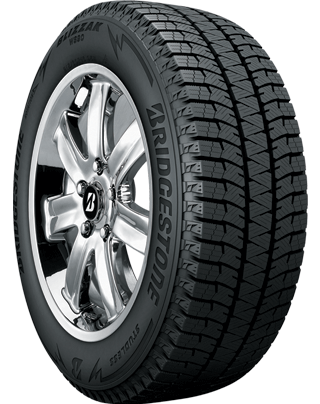
- No warranty
- Winter
- Winter
 Blizzak LM-32
Blizzak LM-32
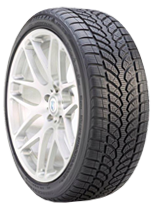
- Platinum Pact Limited Warranty
- Winter
- Winter
 DriveGuard Plus
DriveGuard Plus
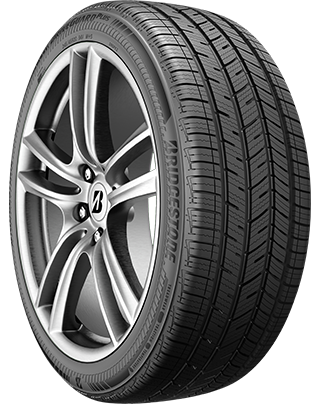
- Platinum Pact Limited Warranty
- All-Season
- Performance
 Ecopia EP422 Plus
Ecopia EP422 Plus
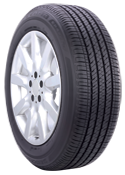
- Platinum Pact Limited Warranty
- All-Season
- Performance
 Potenza RE71RS
Potenza RE71RS
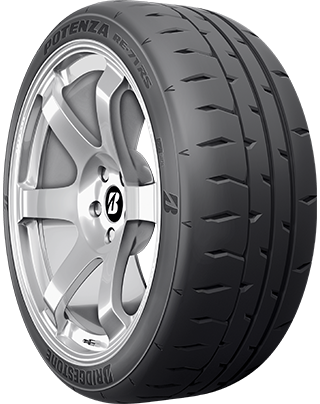
- No warranty
- Summer
- Performance
 Turanza QUIETTRACK
Turanza QUIETTRACK
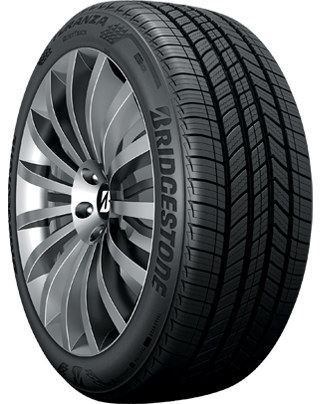
- No warranty
- All-Season
- Performance
 Potenza Sport AS
Potenza Sport AS
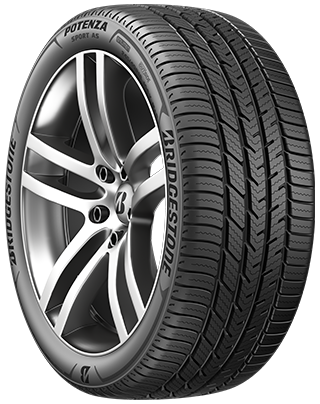
- Platinum Pact Limited Warranty
- All-Season
- Performance
 Potenza Sport
Potenza Sport
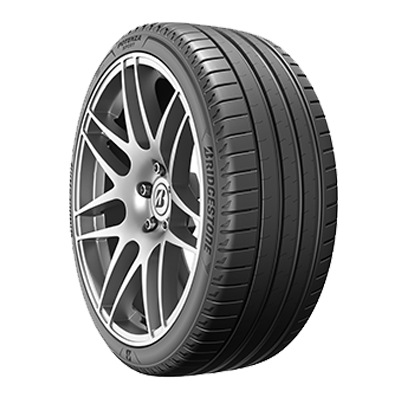
- Platinum Pact Limited Warranty
- Summer
- Performance
 Turanza T005
Turanza T005
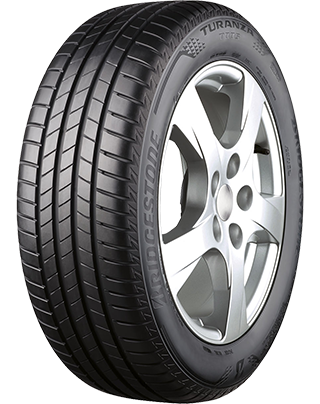
- No warranty
- Summer
- Performance
 Turanza LS100
Turanza LS100
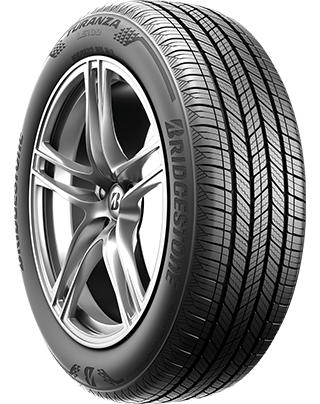
- Platinum Pact Limited Warranty
- All-Season
- Performance
 WEATHERPEAK
WEATHERPEAK
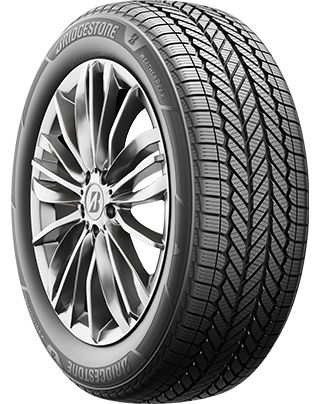
- Platinum Pact Limited Warranty
- All-Season
- Passenger Tires
 Turanza T005A
Turanza T005A
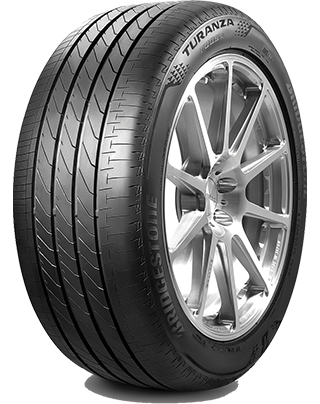
- No warranty
- Summer
- Performance
 Affinity Touring S4 FF
Affinity Touring S4 FF
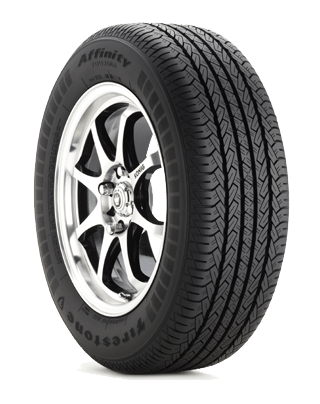
- Gold Pledge Limited Warranty
- All-Season
- Passenger Tires
 ALL SEASON
ALL SEASON

- No warranty
- All-Season
- Passenger Tires
 FT140
FT140
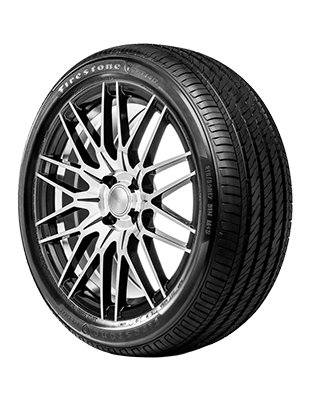
- No warranty
- All-Season
- Passenger Tires
 Firehawk AS V2
Firehawk AS V2
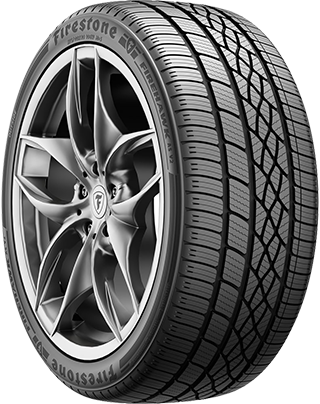
- No warranty
- All-Season
- Performance
 WEATHERGRIP
WEATHERGRIP
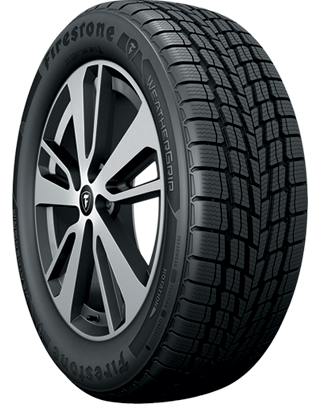
- No warranty
- All-Season
- Passenger Tires
 Firehawk Indy 500
Firehawk Indy 500
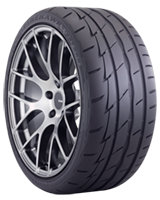
- Gold Pledge Limited Warranty
- Summer
- Performance
 Winterforce 2
Winterforce 2
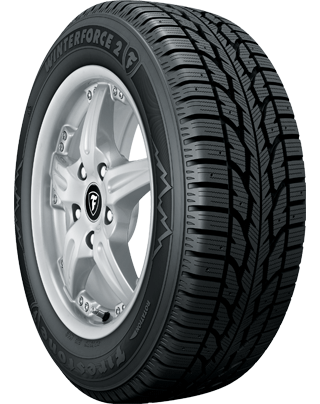
- No warranty
- Winter
- Winter

- No warranty
- All-Season
- Passenger Tires

- No warranty
- All-Season
- Passenger Tires

- No warranty
- All-Season
- Performance
 Extensa A/S II
Extensa A/S II

- No warranty
- All-Season
- Passenger Tires
 PROXES Sport
PROXES Sport
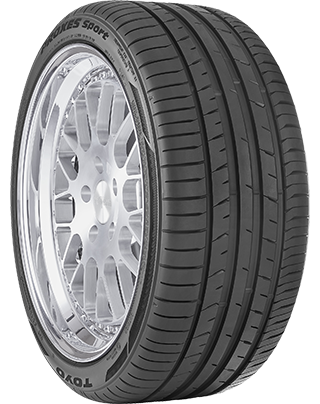
- No warranty
- Summer
- Performance
 PROXES Sport A/S
PROXES Sport A/S
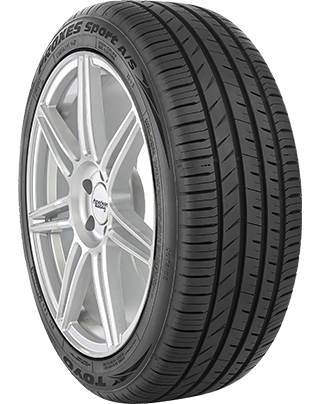
- No warranty
- All-Season
- Performance
2017 Toyota Camry Tire Information
Other than getting the proper tire size, you also want to think about a couple of other things when getting new Toyota Camry tires like how and where you drive, and how much you want to spend. Think about where you live (countryside vs. city vs. mountains) and the kind of unexpected weather you're likely to experience when evaluating your driving conditions. Drivers in states that fully experience all four seasons often buy two sets of tires: one for summer and one for winter. Other drivers prefer to purchase one all-season set to limit trips to the tire shop and make sure their vehicle is prepared in the rain, sleet, snow, or sun!
Your personal driving style is the next factor to consider. If you're a big off-roading fan who forges paths where others can't, you have very different needs than a long-distance commuter who sticks to the highway. Visit your local Firestone Complete Auto Care for help selecting the tire that's right for you, or get started by browsing tires that fit your Toyota Camry.
2017 Toyota Camry Tire Installation & Rotation
Firestone Complete Auto Care has been a leading tire provider for more than a century. We're your tire shop and a complete service center for tire installation, maintenance, repair, rotation, and alignment! Buy 2017 Toyota Camry tires online and schedule your installation when it's convenient for you.
2017 Toyota Camry Tire Q&A
-
Why check Toyota tire inflation? The right tire pressure can make all the difference. Proper tire inflation helps increase fuel economy, improve braking time, and boost tire lifespan! Even a small change in tire pressure can impact your driving.
-
What do the tire sidewall numbers mean for my Toyota Camry? Your tire sidewall numbers tell you the recommended load carrying capacity, speed rating, treadwear, traction, and tire size. Talk to a tire technician to learn how to read Toyota tire numbers.
-
Is there an easy way to check Toyota tire tread depth? Stay on top of your tire tread depth to help avoid a dangerous drive. You can check tread depth with a penny. Hold the penny so that Abraham Lincoln is facing you, then place your penny into a tread groove upside down. If you can see the top of Abe’s head, your tread is shallow and it might be time for new Toyota Camry tires. Grab a penny. Hold the so that Abe Lincon's head is facing you and his hair is pointing toward the ground. Then, place the penny into a tread groove. If you can see the top of Abe’s head, your tread is shallow and it might be time for new Toyota Camry tires.
Repair Services for Your 2017 Toyota Camry
Want more details? Choose a service below to read more about Toyota Camry repairs at Firestone Complete Auto Care.
2017 Toyota Camry Repair Information
For most drivers, the words “car repair” don’t exactly spark excitement. But we work to provide you with a different experience at Firestone Complete Auto Care. Bring your 2017 Toyota Camry in for repair services and our technicians will take care of your Camry like it was their own. We'll work to evaluate the scope of repairs needed and explain your options. We’ll never recommend a repair we don’t think is necessary for your safety or the performance of your Toyota.
What Will Toyota Camry Repairs Cost?
Several factors can affect the cost to repair your 2017 Toyota Camry, including the type of repair, costs of replacement parts or repair supplies, the amount of labor necessary to get the job done, and the state you live in. And check back often — we update our deals regularly!
A few different aspects can influence repair costs for your 2017 Toyota Camry, like
2017 Toyota Camry Auto Repair Questions
-
Do I still need scheduled maintenance even when nothing is wrong with my Toyota? The cheapest 2017 Toyota Camry repair is the one that isn’t necessary in the first place! Staying up-to-date with your car’s scheduled maintenance services is a great way to keep future repair costs low.
-
What's wrong if something feels 'off' in my Toyota? No, we’re not talking about finding the best jams on the radio! You know your car best, and you’re the first person who will notice if something doesn’t feel right (like new smells, sights, or sounds coming from your car). If you sense that something is 'off,' stop in for a Courtesy Check to have these symptoms checked out ASAP. Early action could help you prevent Toyota Camry repairs.
-
Are the repairs you recommend for my Toyota actually needed? Talk to your technician. We'll never recommend a service or repair for your 2017 Toyota Camry that we don't think is necessary for your safety.
2017 Toyota Camry Brake Repair
Your Toyota Camry engine may be strong and reliable. But if you can’t stop it, it’s as good as scrap metal. If you’re experiencing squeaky brakes or a loss of braking power, don’t wait! Safe driving and responsive brakes go hand in hand. Plus, ignoring your brake problems can result in more damage and higher brake repair bills. Get your 2017 Toyota Camry brakes fixed at Firestone Complete Auto Care. We offer many affordable brake repairs like pad/shoe replacement, rotor/drum resurfacing, brake fluid exchange/bleeding, and wheel cylinder and brake caliper installation.
Toyota Camry Brakes Frequently Asked Questions
-
What is causing my Camry to shake when I brake? Feeling shaking or vibrating in your Camry as you brake might indicate a few different problems, including worn brake pads or rotors, loose suspension components, damaged brake calipers, or warped rotors. Book an appointment for a free brake inspection as soon as you notice a problem with your brakes.
-
How long should my Camry brake pads last? You can usually get around 30,000 to 40,000 miles out of your brake pads, but how and where you drive your Camry can affect this. Hauling large loads or riding your brakes can shorten their lifespan, while smoothly braking and mostly sticking to highways can help your brake pads last longer.
-
Is it bad if my Camry is leaking brake fluid when off? Your Camry has a closed hydraulic brake system, meaning you should not have a brake fluid leak under normal conditions. However, parts of your brake system can wear out over time or become damaged, which can lead to a brake fluid leak.
2017 Toyota Camry Drivetrain Repairs
Drivetrains for front, rear, and all-wheel-drive and 4WD vehicles are not all the same. You don't want to go to any random shop for drivetrain repair. You want to go to Firestone Complete Auto Care. We can fix many 2017 Toyota Camry drivetrain components Your Camry might need driveshaft repair if you notice resistance when turning, heavy vibrations in your floorboards, clunks when shifting, or vibration as your vehicle accelerates.
Questions About 2017 Toyota Camry
-
How do I know if my Toyota drivetrain is damaged? Noises toward the back of your Toyota Camry, leaking fluid, trouble turning — these could all be signs of drivetrain damage you want to address. Take action before something more severe happens.
-
Why is my Camry malfunction indicator light (MIL) on? If your Camry has its malfunction warning light (more commonly called the check engine light) illuminated, it could indicate engine troubles, problems with the transmission, electrical issues, malfunctioning sensors, connector problems, or misfire issues.
-
How worried should I be about a drivetrain malfunction in my Camry? A drivetrain malfunction in your Camry should never be taken lightly. Driving with a malfunctioning drivetrain can put you in danger and lead to further vehicle damage, so it's essential to have a qualified mechanic assess and repair the problem as soon as possible.
2017 Toyota Camry Alignment Services
With an alignment service, adjustments are made to your Toyota Camry’s suspension system, which connects the wheels with the rest of the vehicle. During the service, your tire angles are adjusted according to measurements recommended by Toyota. Why? So that your tires can make contact with the road at the best possible angle. Before we adjust the alignment of your 2017 Toyota Camry, we’ll start by checking the current alignment angles. If needed, we'll adjust your wheel alignment angles to match Toyota recommendations.
Answers to Toyota Camry Alignment Questions
-
How can I avoid knocking my Toyota Camry out of alignment? When it’s safe to do so, avoid driving over potholes or hitting curbs. These road obstacles can wreak havoc on your wheel alignment, as can wear and tear from rough road conditions.
-
How frequently should you get a wheel alignment for your Camry? Check your Camry owner's manual for Toyota's recommended interval. It's generally a good idea to check your alignment every 6,000 miles or 6 months, depending on which comes first.
-
Do you need an alignment with new Camry tires? It’s likely not a requirement to get an alignment when you install new tires on your Camry, but it's a smart idea to do so anyway. An alignment can help ensure even tire wear, smooth handling, and better fuel efficiency.
Engine Repairs for Your 2017 Toyota Camry
If your 2017 Camry engine needs repairs, our technicians will provide you with a thorough explanation beforehand. We don't start working until we have your approval. If a service can wait, we’ll make sure you know. If it's necessary for your safety, we'll make sure you understand that, too. We seek to give you all the info you need to make a smart decision about our services. Choose Firestone Complete Auto Care for Toyota Camry engine repairs and you can feel confident knowing that we use Toyota-approved parts and components like the timing chain or belt, oil gasket, fuses, or another part.
2017 Toyota Camry Engine Q&A
-
Why does the check engine light in my Camry turn on when I start my car? It's okay if your check engine light comes on when you first start your vehicle. This is a sign that your vehicle is testing its circuits. The light should go off shortly. Bring your vehicle in if it doesn't.
-
Why does my Toyota engine sound different? Strange engine sounds can be a sign something’s off in your Toyota Camry. Knocking or tapping could be a symptom of low oil. A high-pitched whistle could signal an intake leak or misaligned belt. Squealing can be traced back to a loose fan belt, and grinding might be a sign of brake problems rather than engine issues.
-
Are you unknowingly damaging your Toyota Camry engine? Certain driving habits can hurt your engine. These habits include driving on an empty fuel tank, revving your engine while the vehicle is in Park, or slamming the gas pedal while the engine is still cold. Steer clear of these habits to help protect engine performance and efficiency.
Tire Repair for Your 2017 Toyota Camry
If your 2017 Toyota Camry is in need of a tire inspection or possible flat tire repair, Firestone Complete Auto Care has your back. There’s a chance your tire could be plugged and patched (rather than replaced). Our technicians can inspect your tire and let you know if it is safe to repair. We’ll begin by taking a look at where the damage is, the type and extent of the tire damage, and how all of your tires are wearing.
If a repair on your 2017 Toyota Camry tire is feasible and safe, we’ll get to work on the steps to fix it: (1) Separate the tire from the vehicle wheel, (2) fill in the area that’s been punctured to prevent damage from moisture, and (3) secure and seal the inner tire liner to ensure the tire is airtight.
Your Questions About Toyota Camry Tire Repair, Answered
-
What happens if I drive my Toyota on a flat tire? Driving on a flat or underinflated tire can put extra stress on your wheels and alignment. While it’s sometimes necessary to drive a short distance on a flat tire to get to a safe place, don’t take any other trips in your Camry until you can have the flat tire repaired or replaced.
-
Will a temporary sealant fix my Toyota's flat tire? A temporary sealant may be able to help you get to a repair location safely. But temporary or emergency sealants could possibly damage TPMS sensors, and in some cases may even void the warranty on your Bridgestone or Firestone tires. If your tire needs extensive repair, sealant can add time and labor costs to the process.
-
What can cause Camry tires to keep losing air? If your Camry tires are always losing air, you may have a puncture, damaged wheel, or leaking valve stem.
Maintenance for Your 2017 Toyota Camry
When it comes to your Toyota Camry, how you treat your car makes all the difference in its performance. With proactive maintenance, your Camry could be on the road well past the 200,000 mile mark.
2017 Toyota Camry Maintenance Schedule
What is the manufacturer recommended maintenance schedule for a 2017 Toyota Camry? Find maintenance info for your vehicle.
About 2017 Toyota Camry Scheduled Maintenance
Instead of waiting for an issue to arise with your Camry, you can stay ahead of problems before they even begin. Rely on the recommended maintenance schedule that’s been created just for your 2017 Toyota Camry! The recommended maintenance schedule is put together by Toyota, your vehicle manufacturer. Scheduled maintenance services can vary depending on driving conditions, climate, and other factors; however, recommended maintenance usually includes services like tire rotations, vital fluid checks/exchanges, filter changes, brake pad replacement, and oil changes. Scheduling routine service appointments is one of the best ways to help extend your Camry's life, keep you safer on the road, and help you avoid expensive repairs caused by 2017 Toyota Camry problems later.
Learn About Vital Maintenance Needs for Your Toyota Camry
Bring your 2017 Toyota Camry to Firestone Complete Auto Care for factory-recommended maintenance services and our technicians will jump right in with a Courtesy Check. A Courtesy Check helps "set the stage" for your service and catch any small problems before they turn into big repairs. Each Courtesy Check includes a free battery test and an inspection of your Camry's windshield wiper blades, head and tail lights, filters, fluid levels, tires, and alignment.
Firestone Complete Auto Care is your spot for 2017 Toyota Camry maintenance. We can help you keep your vehicle (and your life!) running smoothly. Many of our locations have weekend and evening hours for your convenience.
2017 Toyota Camry Maintenance Q&A
-
When should I have Toyota Camry alignment checked? You know your Toyota Camry better than anyone else, so you’ll know if something doesn’t feel right while driving. Have your alignment checked (and adjusted if necessary) as soon as you notice a pulling steering wheel to prevent suspension damage or uneven tire wear.
-
When should I switch my Toyota Camry to high mileage oil? Do you have more than 75,000 miles on your Toyota Camry? If so, request to switch to high mileage oil at your next oil change. This type of oil is specially formulated to keep aging engine parts in the best possible condition.
-
Can Toyota dashboard warning lights wait? Don't ignore dashboard warning lights! Bring your Toyota Camry in for a diagnostic code scan as soon as a dashboard warning light flashes on, whether it's your check engine or battery light. Dashboard lights alert you to trouble under the hood.
Battery Size & Replacement for 2017 Toyota Camry
Need more info about Toyota Camry batteries?
| Battery | Engine | Warranty | Cold Cranking Amps | |
|---|---|---|---|---|
| 24F-3 | L4/2.5L | Replacement 24 months | Performance months | 650 |
| 24F-3 | L4/2.5L | Replacement 24 months | Performance months | 650 |
| 35-2 | L4/2.5L | Replacement 36 months | Performance months | 640 |
| 35-2 | L4/2.5L | Replacement 36 months | Performance months | 640 |
| 24F-RP | L4/2.5L | Replacement 48 months | Performance months | 750 |
| 24F-RP | L4/2.5L | Replacement 48 months | Performance months | 750 |
| 24F-3 | V6/3.5L | Replacement 24 months | Performance months | 650 |
| 24F-3 | V6/3.5L | Replacement 24 months | Performance months | 650 |
| 35-2 | V6/3.5L | Replacement 36 months | Performance months | 640 |
| 35-2 | V6/3.5L | Replacement 36 months | Performance months | 640 |
| 24F-RP | V6/3.5L | Replacement 48 months | Performance months | 750 |
| 24F-RP | V6/3.5L | Replacement 48 months | Performance months | 750 |
| 24F-3 | V6/3.5L | Replacement 24 months | Performance months | 650 |
| 24F-3 | V6/3.5L | Replacement 24 months | Performance months | 650 |
| 35-2 | V6/3.5L | Replacement 36 months | Performance months | 640 |
| 35-2 | V6/3.5L | Replacement 36 months | Performance months | 640 |
| 24F-RP | V6/3.5L | Replacement 48 months | Performance months | 750 |
| 24F-RP | V6/3.5L | Replacement 48 months | Performance months | 750 |
| 24F-3 | L4/2.5L | Replacement 24 months | Performance months | 650 |
| 24F-3 | L4/2.5L | Replacement 24 months | Performance months | 650 |
| 35-2 | L4/2.5L | Replacement 36 months | Performance months | 640 |
| 35-2 | L4/2.5L | Replacement 36 months | Performance months | 640 |
| 24F-RP | L4/2.5L | Replacement 48 months | Performance months | 750 |
| 24F-RP | L4/2.5L | Replacement 48 months | Performance months | 750 |
| 24F-3 | L4/2.5L | Replacement 24 months | Performance months | 650 |
| 24F-3 | L4/2.5L | Replacement 24 months | Performance months | 650 |
| 35-2 | L4/2.5L | Replacement 36 months | Performance months | 640 |
| 35-2 | L4/2.5L | Replacement 36 months | Performance months | 640 |
| 24F-RP | L4/2.5L | Replacement 48 months | Performance months | 750 |
| 24F-RP | L4/2.5L | Replacement 48 months | Performance months | 750 |
| 24F-3 | V6/3.5L | Replacement 24 months | Performance months | 650 |
| 24F-3 | V6/3.5L | Replacement 24 months | Performance months | 650 |
| 35-2 | V6/3.5L | Replacement 36 months | Performance months | 640 |
| 35-2 | V6/3.5L | Replacement 36 months | Performance months | 640 |
| 24F-RP | V6/3.5L | Replacement 48 months | Performance months | 750 |
| 24F-RP | V6/3.5L | Replacement 48 months | Performance months | 750 |
2017 Toyota Camry Batteries
The average car battery lasts three to five years. Check your battery regularly and replace it as needed so it doesn’t leave you and your Toyota Camry stranded. Look out for symptoms of a faulty car battery. A slow engine crank, an illuminated battery or check engine light, bloated battery case, corrosion-covered posts, or dim headlights can all signal that your battery is on its last leg.
Plus, at Firestone Complete Auto Care, we’ll test your battery for free. Drop in for a free battery check and, if necessary, a battery replacement to help keep your 2017 Toyota Camry running! Automotive batteries are just one of our many areas of expertise. Our expert technicians understand Toyota service recommendations for Camry battery CCAs and reserve capacity. Get help identifying the type and size of battery that's best for your Camry, and schedule a fast car battery replacement at your earliest convenience.
Answers to Your Toyota Camry Car Battery Questions
-
Why doesn’t my Toyota Camry battery stay charged? A battery that won't hold a charge is almost as good as dead. The battery might be old. Or, you may have a habit of leaving your car doors open and the lights on overnight. Stop by for a free battery test at your local Firestone Complete Auto Care to learn more about the state of your battery.
-
What is the average lifespan of a car battery? The typical 12-volt car battery may last three to five years, depending on the type of battery, the driving conditions, and how well the battery is maintained.
-
Why is there white, flaky stuff around my Camry’s battery post? The white, flaky stuff that can build up around your Camry’s battery terminals is known as corrosion. Acid leaking from your vehicle’s battery post can have a chemical reaction with the air, leading to an accumulation of the white, powdery substance over time. Corrosion can affect the flow of electricity between your battery and the electrical system in your Camry, possibly causing issues with electrical performance and starting. If left unaddressed for long enough, it may even cause your battery to prematurely fail.
Oil Changes for 2017 Toyota Camry
Your 2017 Camry’s oil should be changed according to Toyota’s recommended oil change intervals. No matter the mileage, your Camry may need its oil changed ASAP if your check engine light is on, you hear knock knock knock coming from the engine, sense an oil smell in the cabin, or notice excess vehicle exhaust. You might need an oil change more frequently than what’s recommended by Toyota if you regularly haul heavy loads, drive in dusty areas, go off-roading a lot, or drive at low speeds for long distances.
Whether it’s synthetic, conventional, or a blend of both — your local Firestone Complete Auto Care has the right oil for your Toyota Camry. Check your owner's manual and talk with a technician to select the right Toyota Camry oil, whether it's Quaker State® Advanced Durability™ conventional oil, Pennzoil® High Mileage Vehicle® motor oil, Pennzoil Platinum® Full Synthetic motor oil with PurePlus™ Technology, or Shell Rotella® heavy-duty engine oil. During an oil change, one of our techs will change your Camry’s oil, replace and recycle your used oil and filter, check all of your other filters, refill vital car fluids, and visually inspect the rest of the vehicle. Let the experts take care of your Camry’s engine by making an oil change appointment today.
2017 Toyota Camry Oil Change Q&A
-
What can cause the oil light on my Toyota Camry to illuminate? If you’re overdue for an oil change, it might trigger your Toyota Camry oil change reminder light. If the oil pressure light is illuminated, it could be due to low engine oil, a failing oil pump, a malfunctioning oil pressure sensor, or a clogged oil filter.
-
Can I change my Toyota Camry oil at home? Changing engine oil at home isn’t as simple as it’s made out to be. You’ll have to figure out how to properly dispose of the oil and buy special tools. Having your oil changed professionally can not only reduce the risk of something going wrong during the service, but it’ll also help your car perform smoothly down the road.
-
Why is my Toyota Camry exhaust smoke grayish or blue? Your engine could be burning oil due to a leak. It may be time for a pro to take a look. A leak can be caused by a variety of issues including faulty valve seals, blown piston rings, or damaged cylinder walls.
Engine Tune-Up Service for Your 2017 Toyota Camry
Regular engine tune-ups can optimize your Camry’s power on the road. Your local Firestone Complete Auto Care offers a range of engine tune-up services for your 2017 Toyota Camry. The standard Firestone Tune-Up is one service option. The standard Firestone Tune-Up includes new spark plugs (and installation!), a thorough inspection of engine components, and a lifetime parts warranty*. Another service option pays special attention to the filters in your Camry. Specifically, we replace the fuel filter and air filter. The third tune-up option is a fuel system cleaning service, which is a three-step process that removes varnish, dirt, and carbon deposits on your Camry's fuel injectors, throttle body, and throttle plate. This goes a long way in boosting your fuel system’s overall performance. Keep in mind that your Camry's mileage and maintenance history can uniquely impact its tune-up needs. Ask one of our technicians what your vehicle needs, based on your driving habits and your car’s current condition.
*Ask a Firestone Complete Auto Care teammate about full terms and conditions for warranties.
Questions About 2017 Toyota Camry Engine Tune-Ups
-
When should Toyota Camry spark plugs be replaced? Replace spark plugs on time or about every 30,000 miles or so. Spark plugs are small but mighty. The spark of electricity that the plug emits across a small gap creates the ignition for the combustion needed to start your car. Without that spark, your car won't start.
-
What do I do if I see a pool of liquid under my Toyota Camry? Don't ignore puddles of fluid under your Toyota Camry. It could signal a coolant leak, brake fluid leak, or an oil leak. Let any one of these leaks linger and it could cause engine damage.
-
How often should I clean my Toyota Camry fuel injectors? The frequency at which car fuel injectors should be cleaned can vary depending on several factors, including the type of fuel used and the driving conditions. Some manufacturers generally recommend a fuel system cleaning as part of your general car maintenance, or as needed based on symptoms of poor fuel system performance.
2017 Camry Toyota Steering & Suspension Services
When you first bought your 2017 Toyota Camry, you probably enjoyed a smooth and steady ride. Lately, though, your ride’s been feeling a little bumpy. Maybe your Camry bounces, drifts to one side, or makes a weird sound when you drive over a speed bump or turn. The first sign of trouble is the best time to bring your 2017 Toyota Camry in for steering and suspension repairs. We'll get to the root of the problem and, if steering and suspension service is needed, we’ll go over the services you need and how much they will cost before we do any work.
2017 Toyota Camry Steering & Suspension Questions
-
Why is my Toyota Camry bouncing so much? Damaged struts or shocks can't dampen road bumps properly, causing your vehicle to feel like a trampoline after each dip or bump.
-
What can cause the front end of my Camry to dip forward when I apply the brakes? As you brake, the forward momentum of your Camry combined with its weight sends a ton of force to its front end. A damaged or worn suspension system can cause the front end to compress and dip even further.
-
Does treadwear and tire pressure impact my Camry's steering and suspension? Keeping your tires properly inflated can help reduce strain on the suspension, and also help you notice when you need new tires. A tire that doesn't have an adequate amount of tread can't grip the road or function as well as the manufacturer intended.
A/C Service for Your 2017 Toyota Camry
Technicians at Firestone Complete Auto Care are ready to help you address your 2017 Toyota Camry A/C problems. During an A/C performance check, we'll determine the condition of your 2017 Toyota Camry A/C system to evaluate what repairs are necessary (if any). This check includes a visual inspection, performance test, and pressure and leak test.
When we perform an A/C repair on your 2017 Toyota Camry, we’ll also do an A/C evacuation and recharge. To start this process, a technician will flush out the old refrigerant from your vehicle’s A/C system. Then, they’ll use Toyota’s specifications to evacuate the system. The A/C system is recharged with new refrigerant.
2017 Toyota Camry A/C System FAQs
-
What’s making my Camry A/C put out warm air? Maybe your A/C starts cool but then gets warm. Or maybe it never gets cold in the first place. Either way, your A/C troubles could be traced back to a clogged expansion valve, faulty compressor clutch, blown fuse, or leak.
-
What causes A/C system leaks? Over the years, the rubber seals and gaskets in your Camry’s A/C system naturally degrade. Moisture can get into the system and cause a malfunction, or parts can simply wear out so that your system no longer seals properly.
-
Why does my vehicle have to be moving for my Camry’s A/C to work? If your A/C only works when the vehicle is moving, there could be a problem with part of your Camry’s A/C or electrical system. Potential issues include low coolant or a faulty cooling fan.
Transmission Services for 2017 Toyota Camry
The transmission delivers power from the engine to the wheels so that you can drive on your terms. Since the transmission has to translate the precise amount of power for your desired amount of speed, a small transmission issue can put a big dent in your Camry’s performance. Toyota Camry transmission problems can present themselves as shifting delays, grinding or jumping during acceleration, the car shaking at any speed, or whistling noises and a burning smell coming from under the hood. If you don’t pay attention to Toyota Camry transmission trouble you might notice your fuel economy decrease or discover that your Camry’s not even driveable. Our technicians are trained to service 2017 Toyota Camry transmission systems according to vehicle manufacturer recommendations. Schedule an appointment at your local Firestone Complete Auto Care at the first sign of transmission problems to help diagnose, treat, and prevent major transmission issues.
Questions About 2017 Toyota Camry’s Transmission
-
Does my Camry's transmission fluid need to be inspected? Caring for your Toyota Camry’s transmission fluid is a great way to help it perform. About every 30,000 to 60,000 miles is a good timeframe for having your transmission fluid inspected and perhaps changed. Service intervals can vary depending on how you use your Toyota, so check with your technician first. Luckily, leaks and low fluid levels are easy to spot and inexpensive to fix.
-
Is it possible for transmission fluid to leak from my Toyota Camry? Yes. Toyota Camry transmission fluid can leak as time passes, which may lead to transmission problems. Transmission fluid leaks are often caused by worn or damaged transmission components, such as the transmission pan, cooler lines, seals, or housing. An overfilled transmission may also be behind your transmission fluid leak.
-
Should I avoid driving my Toyota Camry if there is a transmission fluid leak? It’s not advisable to drive your Camry if it’s leaking transmission fluid. Your transmission system needs transmission fluid to function properly, and a leak can lead to significant problems, such as overheating or reduced performance. You might even experience transmission failure.
Get a 2017 Toyota Camry Vehicle Inspection
When you bring your vehicle to Firestone Complete Auto Care for any service, we’ll automatically do a multi-point Courtesy Check. First, a technician will pop the hood on your Toyota Camry and test the battery to find out how much charge is remaining on it. After we’ve inspected your Toyota Camry’s battery, we’ll visually inspect your filters, lights, wiper blades, alignment, tires, hoses, belts and fluid levels.
Every service performed at your nearest Firestone Complete Auto Care will include a Courtesy Check, but we also offer an in-depth Complete Vehicle Inspection for your 2017 Toyota Camry. A Complete Vehicle Inspection includes everything in a Courtesy Check, plus an examination (by hand!) of your steering and suspension system, brakes, and exhaust components. The goal of this type of inspection is to unearth significant issues that might wreak havoc on your 2017 Toyota Camry if left unaddressed.
Depending on your location, your local Firestone Complete Auto Care may be able to perform state-mandated inspections or safety tests on your vehicle. Specific requirements for these types of inspections vary by state.
2017 Toyota Camry Vehicle Inspection Q and A
-
How do I know if I should have an inspection on my Toyota Camry? It needs a check-up if something feels 'off' to you, the driver. Your Toyota Camry could benefit from a Courtesy Check if it has any illuminated dashboard lights, you hear weird noises coming from any part, the engine doesn't start sometimes, or your vehicle pulls to one side.
-
Can you fix my 2017 Toyota Camry so it will pass a state inspection test? Don’t panic! Come in for a complete inspection today and we’ll find (and repair) the root cause before you have your vehicle retested.
-
When is the best time to get a complete vehicle inspection for my Toyota Camry? The best time to have a complete vehicle inspection done on your Toyota Camry is when you notice something is off but you can’t locate the issue yourself. Schedule an inspection if you experience any unusual symptoms, such as unfamiliar dashboard indicators, strange engine noises, or steering changes. An inspection can be especially beneficial before a road trip for the simple peace of mind. You can feel confident in your adventure!
2017 Toyota Camry Radiator Service
Staying on top of routine radiator maintenance for your 2017 Toyota Camry is a huge factor in the longevity of your engine. Toyota recommends that you replace coolant (also called antifreeze) at certain intervals, but it’s also wise to keep an eye out for signs of a failing radiator. You might be driving around (or about to be stranded) with a failing radiator if you notice a low coolant light or higher-than-normal engine temperatures on your dashboard, or if you spot coolant leaks coming from your car.
If you bring your vehicle to Firestone Complete Auto Care, we start with a comprehensive inspection of your Toyota Camry’s cooling system. Then, we’ll move on to a machine-powered coolant exchange. Finally, we’ll refill the flushed sealants, lubricants and chemicals, then do a pressure check to catch any possible leaks. From the heater core to the radiator cap, we’re here to give your 2017 Toyota Camry the top-notch service it needs.
Questions About Toyota Camry Radiators
-
Why is the coolant light on my Toyota dashboard on? f the coolant light illuminates on your dashboard, your engine could be overheating. Pull over to a safe area and wait for the engine to cool down. Then, head to your nearest Firestone Complete Auto Care for a coolant system check.
-
What is causing my Camry to overheat? Low coolant, a damaged cooling fan, a faulty water pump, a malfunctioning thermostat, or a clogged radiator could all cause your Toyota Camry engine to overheat.
-
What can cause a Camry radiator to make boiling or rumbling sounds? There could be air pockets in your Camry’s cooling system. You might also have a clogged radiator or faulty radiator cap (this last one is an easy fix!).